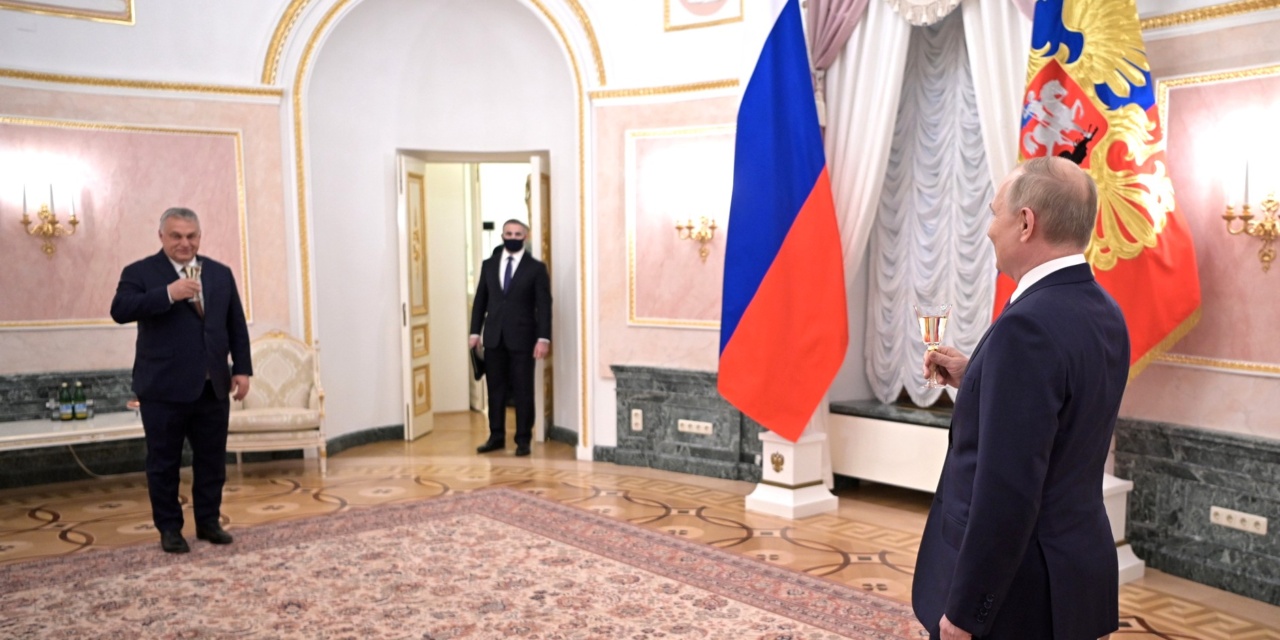Russian President Vladimir Putin greets Hungarian Prime Minister Victor Orban, Moscow, February 1, 2022
In a special edition of World Unfiltered, Anton Shekhovtsov — one of the world’s leading experts on European far-right politics and connections with Russia — talks about Vladimir Putin’s threats to Ukraine, the US-European response, the position of Germany, and the wider issues of far-right politics and European stability.
Regular host Scott Lucas is joined by guest co-host Monique Camarra of Kremlin File, who offers her own analysis of Putin’s pursuit of “long-term regime change”.
On Putin’s approach to Ukraine:
A successful Ukraine can be a very bad example for Russian leaders.
Putin thinks that Ukrainians do not really exist. He thinks these are just some people within the greater Russian nation.
If one part of his “nation” succeeds in modernization, democratization, and Westernization, this undermines the main narrative of the Putin regime with their own population.
On the German position:
Germany does not want to take leadership of the EU or the European Union. It fears leadership for historical reasons. It is satisfied with being an economic and business leader, but it doesn’t want to be a political leader….
Germany doesn’t want to understand that Ukraine is a country with which it should have a special relationship, and not just have this historical guilt about Russia only.
On US and European measures to support Ukraine and countries in Eastern Europe:
I am satisfied with how the West responded. With all the wobbling on the part of member states, all the hesitancy about sanctions, still in a very short period of time we saw the unity among NATO member states.
That is surprising for me, in a very, very good sense.
3:05 What are Vladimir Putin’s tactics for “long-term regime change”?
7:56 What is significance of the visit of Hungarian Prime Minister Victor Orban to Moscow — for the far right, for Hungarian politics, and for Ukraine?
14:03 Why have the Polish and Hungarian Governments taken different positions on Ukraine and Russian intervention in Eastern Europe?
17:32 Have we heard much for far-right leaders in Western Europe, including France and Germany, about the Ukraine situation?
21:24 Is there “strategic confusion” in Germany over how to approach Ukraine and Russia?
26:58 Will Germany step up and do more to support Ukraine if there is a Russian invasion?
28:19 Have the US, Europe, and NATO effectively coordinated a “division of labor” supporting Ukraine against Putin’s threat?
31:17 Will Hungary block additional sanctions on Russia by the European Council?
33:44 Is there division between the Ukrainian military and President Zelenskiy over the Russian threat?
36:51 What motivates Putin’s approach to Ukraine? Can it be modified by sanctions?
44:38 Is there any diplomatic “off-ramp” with Putin to avoid an expanded war inside Ukraine?

